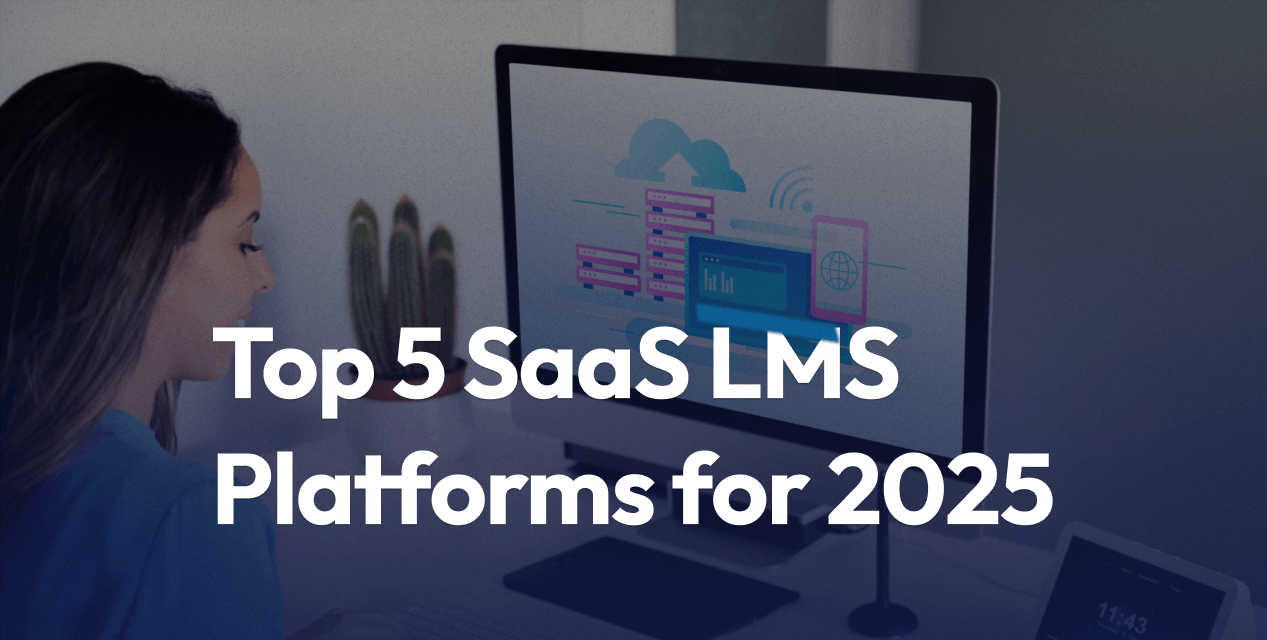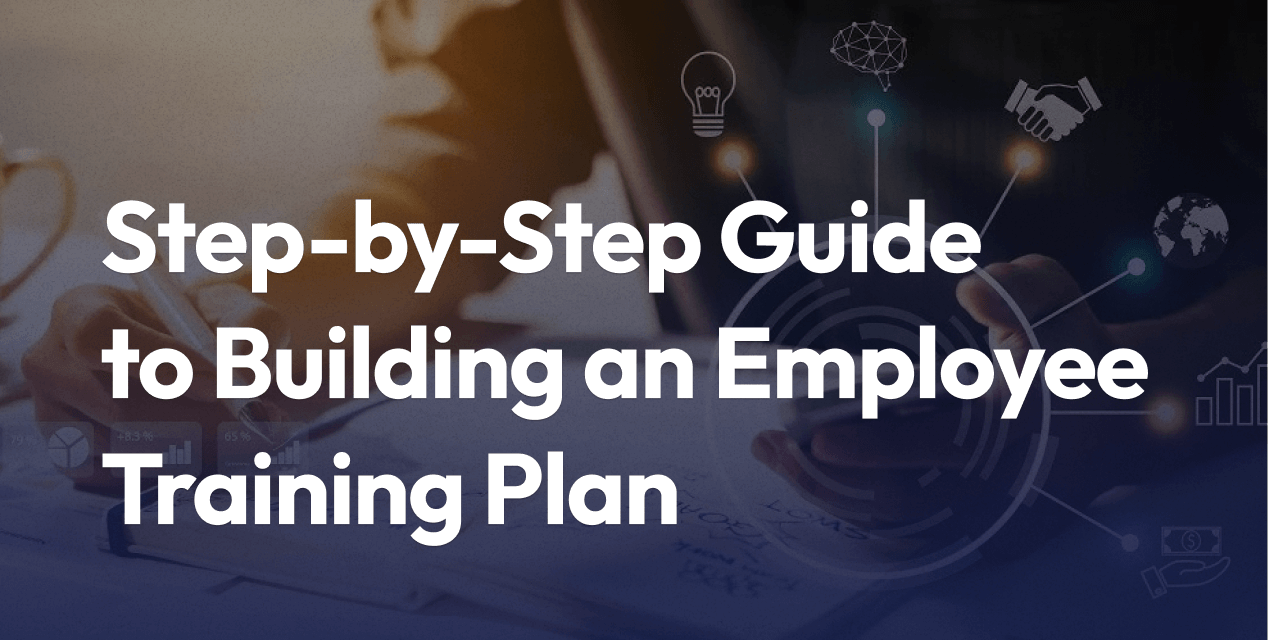
Top 5 SaaS LMS Platforms for 2025
In 2025, organizations of all sizes – from small nonprofits to global enterprises – are increasingly relying on learning management systems to Top 5 SaaS LMS Platforms for 2025deliver training and education online. Modern LMS platforms offer the convenience of cloud hosting, regular updates, and scalability without the technical headaches of self-hosting. With a crowded market, it can be challenging to find the right fit. This article profiles five standout LMS platforms that lead the pack in 2025, with a focus on flexibility, ease of use, and value.
1. LMS Light – Open-Source Flexibility Made Easy
LMS Light is a newcomer that quickly tops the list thanks to its unique blend of open-source power and SaaS convenience. This platform is powered by the Moodle™ LMS engine – the world’s most widely used open-source learning platform – but offered in a lightweight, managed SaaS package. In practical terms, that means you get the proven reliability and extensibility of Moodle without the typical setup complexity. LMS Light comes pre-loaded with a curated set of plugins and features that most organizations need, without the bloat. For example, it includes built-in integration with the OpenSesame e-learning content library, interactive live polling tools for engagement, and easy certificate generation for course or quiz completion – all ready to use from day one.
What truly sets LMS Light apart is how quickly you can get up and running. You can spin up a graded quiz with an auto-issuing certificate in minutes, or create a private team portal for a department or member group with just a few clicks. Course content delivery is straightforward, with intuitive dashboards for uploading materials, enrolling users, and tracking progress. The interface is clean and modern, deliberately simplified from Moodle’s usual admin-heavy look, making it approachable even for non-technical trainers. Ease of use and a “quick start” philosophy are core tenets of LMS Light – you don’t need an IT team to launch new trainings or onboard learners.
Despite its simplicity, LMS Light doesn’t skimp on power. Because it’s built on Moodle’s open architecture, it’s a non-proprietary solution – you’re not locked into a vendor’s closed ecosystem. Organizations maintain ownership of their data and can even extend the platform with thousands of available Moodle plugins if needed, ensuring transparency and extensibility. For instance, if you require a niche feature, there’s a good chance a Moodle plugin already exists for it, and LMS Light can support it. The platform’s creators also offer access to expert guidance and services for custom configurations, so you have a safety net as you grow. Security and reliability are enterprise-grade (inherited from Moodle’s robust codebase) and all the infrastructure is managed in the cloud with full SSL encryption and backups. Moreover, LMS Light is fully accessibility compliant (adhering to standards like WCAG), which is crucial for inclusive learning experiences.
Another big plus is the customer support model. LMS Light provides strong support channels – you can reach out via live chat or email and get help from actual Moodle experts who understand e-learning. The company’s philosophy includes simple cancellation and fair pricing – no long-term contracts are binding you. This makes it especially appealing to nonprofits and associations that value flexibility. In fact, LMS Light is specifically tailored to organizations like professional associations, nonprofits, and community groups (HOAs/POAs) that need an affordable, easy-to-manage LMS for member education and certification. These types of organizations often lack dedicated e-learning staff, so the combination of ease-of-use, quick setup, and reliable support is a game-changer. Overall, LMS Light earns the top spot by delivering extreme user-friendliness and flexibility in one package. It’s essentially the best of both worlds – the power of an open-source LMS (with decades of development and a huge ecosystem behind it) distilled into a hassle-free SaaS solution.
2. TalentLMS – User‑Friendly and Scalable Training Platform
TalentLMS is designed to be extremely intuitive for both administrators and learners. Its interface is modern and clean, with minimal clutter, so creating courses, enrolling users, and tracking progress feels straightforward. In fact, TalentLMS prides itself on enabling users to sign up and launch training in record time, claiming you can get an account configured in seconds and start delivering learning “2× faster” than before. This ease-of-use extends to learners with a responsive design that works well on all devices (and native mobile apps for iOS/Android). Even if you’re not a tech expert, you and your trainees can feel at home on the platform from day one.
Despite its simplicity, TalentLMS packs a lot of features. It offers an integrated course editor so you can develop training content using videos, presentations, quizzes, and more, or you can import courses made with external authoring tools (it supports standards like SCORM and xAPI). There’s also support for live webinars/meetings via integrations (e.g. Zoom), and engaging elements like gamification (badges, points, leaderboards) to motivate learners. A recent addition is the AI-powered course creator, which can generate basic course outlines and content with a simple prompt – a cutting-edge feature that helps organizations build courses faster. For those who prefer ready content, TalentLMS offers an optional paid library called TalentLibrary with over a thousand pre-made courses on common business topics. The platform supports a range of training scenarios out-of-the-box: employee onboarding, compliance training, customer education, partner training, and more. It’s flexible enough to serve small businesses and large enterprises alike (it even supports creating multiple branch portals for different departments or clients).
3. Easy LMS – Simplified Training with Flat‑Fee Pricing
It provides a cloud-based learning management system that’s particularly appealing to small and medium-sized businesses, training companies, and any organization that needs a no-fuss way to train employees or clients. The interface is clean and minimalistic, making it simple for admins to create courses or quizzes and for learners to navigate through their training. Many user reviews highlight that Easy LMS is quick to set up and requires little training to administer. If you don’t need an overly complex system, Easy LMS delivers the core functionality in a refreshingly accessible way.
One of Easy LMS’s standout advantages is its pricing model. Unlike most LMS platforms that charge per user or per “seat,” Easy LMS uses a flat-rate subscription model – meaning you pay a fixed price for the platform and can train as many people as you want within fair usage limits. There are tiered plans (with names like Business Owl and Corporate Owl) that differ by feature set and volume, but none of them charge per learner. This transparent pricing approach can save a lot of money for organizations that have a large or fluctuating user base, since you’re not penalized for growth. It also makes budgeting easier with no surprise costs. As the company puts it, you “don’t pay per participant – just train better for less”. All plans come with a generous allowance of participant sessions, and you can start with a free trial. This no pay-per-user scalability is a big selling point, especially for customer training or membership-based training programs.
4. Litmos – Enterprise‑Ready LMS with Content Library and Integrations
Litmos (formerly known as SAP Litmos) is a powerhouse in the LMS space, particularly for corporate and large-scale training use cases. It’s an enterprise-grade SaaS LMS that has been around for years, serving thousands of global brands. Despite its focus on big business, Litmos emphasizes “powerful but easy-to-use” functionality for both administrators and learners. In practice, Litmos offers a clean, professional interface and a guided approach to setting up training programs, so organizations can often deploy it in a matter of days, not months. It’s built to handle complex, large-scale training needs – think employee compliance training across different countries, sales training for thousands of partners, or multi-brand customer education – yet it maintains a relatively streamlined user experience given its vast capabilities.
One of Litmos’s strengths is its rich feature set and ecosystem. It’s a true all-in-one platform. For content creation, Litmos includes a built-in content authoring tool that allows you to create courses (including slides, quizzes, and even surveys) directly within the LMS. This is great for teams that don’t want to buy separate authoring software – even non-experts can craft interactive courses with templates and multimedia. If you already have content from elsewhere, Litmos, of course, supports standard formats like SCORM and xAPI, so you can upload existing modules. Additionally, Litmos offers a huge off-the-shelf content library called Litmos Training Content, which is an optional subscription that provides “always up-to-date” courses on topics ranging from HR compliance and safety to leadership skills. This library can be a game-changer for companies that want ready-made professional content to supplement their custom training – you can simply assign these pre-built courses to your learners. Few LMS competitors have an in-house library of this magnitude.
5. Tovuti LMS – Highly Interactive, All-in-One Learning Platform
Rounding out our top five is Tovuti LMS, a relatively newer player that has quickly made a name for itself with an engaging, interactive approach to online learning. Tovuti is an all-in-one platform that not only delivers courses to learners but also provides a suite of tools to create rich, multimedia learning experiences. It’s often praised as one of the most engaging LMS platforms available. In fact, users have noted that the variety of interactive learning activities Tovuti enables is “far greater than any other platform” they’ve used. These interactive options include things like flash cards, memory games, hotspots, interactive videos, and other creative content modules in addition to standard quizzes and slideshows. This makes Tovuti especially appealing for trainers who want to go beyond simple slide-and-quiz courses and really captivate their audience.
Tovuti’s feature set is very comprehensive. You can easily create courses that blend different content types, and Tovuti supports both self-paced eLearning and instructor-led training (blended learning). For live sessions, it has integrations for video conferencing so you can schedule webinars or virtual classes. It also has an event management component to handle in-person training scheduling and check-ins, which some LMS platforms lack. Tovuti includes built-in tools for badges and gamification, social learning (forums or community interaction around courses), and even e-commerce capabilities – meaning if you want to sell courses or offer subscription access to your learning content, Tovuti can handle the storefront, payments, and access control. This is great for organizations that monetize their training. Customization is another strong point: you can brand the platform extensively to make your learning portal look and feel like your organization (custom logos, colors, and even custom URL domains).
Comparison of Top 5 LMS Platforms
The table below summarizes the key features and characteristics of these five LMS platforms side by side:
| Platform | Key Features | Support | Ease of Use | Pricing Model | Integrations |
|---|---|---|---|---|---|
| LMS Light (Moodle™-powered) | – Open-source Moodle core with curated plugins (e.g. OpenSesame library, live polls, certificates)– Instant setup for quizzes, courses, and private team portals– Secure cloud hosting & full accessibility compliance | Personalized support from Moodle experts (live chat/email); Guidance services available; Community resources via Moodle | Very high – Streamlined UI, minimal learning curve for admins and learners | Subscription SaaS (monthly or annual); Personal consultations; Simple cancellation policy | Moodle plugin ecosystem (thousands of extensions); OpenSesame integration; Open API for custom integrations; supports SCORM/xAPI content |
| TalentLMS | – All-in-one LMS for training (course creation, quizzes, assignments)– Gamification (badges, points), and AI course creator– Optional 1,000+ course content library (TalentLibrary) | Email support (free plan) + extended support on paid plans; Knowledge base & 24/7 online help center; High customer satisfaction | Very high – Intuitive and modern interface; quick to adopt; Mobile app for learners | Freemium (free up to 5 users); Tiered paid plans based on number of users; Monthly or annual billing, cancel anytime | 200+ integrations via API & Zapier; Native integrations (Zoom, Salesforce, Slack, etc.); SSO support; REST API for developers |
| Easy LMS | – Simplified LMS for courses and exams (with certificates)– “Academy” multi-portal feature for client or department training portals– Custom branding and multilingual support | Email and live chat support (business hours); Comprehensive help center; Reputed responsive support team | High – Clean, straightforward UI; Little technical skill required; Learners have easy access | Flat-rate subscriptions (no per-user fees); Different plans by feature level; 7-day free trial available; Easy to upgrade or cancel | Webhooks & REST API for custom integrations; Supports SSO (OpenID Connect); Limited built-in third-party app integrations (focus on core LMS functions) |
| Litmos | – Enterprise LMS with built-in content authoring and automated assignments– Massive off-the-shelf course library (compliance, skills, etc.)– Advanced reporting, analytics, and compliance management | 24/7 support available; Dedicated customer success for enterprise; Online community and knowledge base; Training services for onboarding | Moderate/High – Feature-rich but with a user-friendly interface; Admins may need training due to depth; Learners get a simple, branded experience | Per-user licensing (volume pricing); Custom enterprise quotes; Free trial offered; Annual contracts common for larger deployments | 30+ out-of-box integrations (HR systems, CRM, video conf., eCommerce); Open API for custom integrations; Supports SCORM/AICC/xAPI standards; OAuth SSO integration |
| Tovuti LMS | – Highly interactive content creation (games, quizzes, videos, etc.)– Blended learning support and built-in event management– E-commerce module for selling courses or subscriptions | Dedicated support team with onboarding assistance; Fast response support; Extensive online tutorials and knowledge library | Medium – Modern UI but very feature-rich (some learning curve for admins); Learner side is engaging and straightforward | Tiered plans by number of users (Starter to Enterprise); Mid-range pricing; No free plan (demo/trial available); Contracts typically annual | Wide range of integrations (“click to integrate” with most systems); API and Zapier support; SSO (SAML/OAuth) available; Custom integrations supported through open API |
Table: Comparison of key features, support, usability, pricing, and integrations for LMS Light, TalentLMS, Easy LMS, Litmos, and Tovuti LMS (2025).
Conclusion: Why LMS Light Leads the Pack in 2025
Choosing the right LMS comes down to your organization’s specific needs and priorities. All five of these SaaS LMS platforms are excellent in their own right and have earned their place among the top solutions of 2025. If you prioritize a polished user experience with lots of out-of-the-box features and don’t mind a closed system, TalentLMS is a fantastic all-around choice – it’s affordable and very easy to work with. For those who need a budget-friendly, no-frills solution, especially if you plan to train large numbers of people without breaking the bank, Easy LMS offers simplicity and flat-rate pricing that’s hard to beat. If you represent a large enterprise or a highly regulated industry, Litmos provides an enterprise-proven platform with every bell and whistle (from built-in content to deep integrations) to run massive training operations. And if your focus is on delivering training that truly captivates learners, Tovuti LMS shines with its interactive learning tools and comprehensive approach to content and engagement.
So, where does LMS Light fit into this landscape? We’ve highlighted it as the top choice because it manages to combine the strengths of several categories in one offering. LMS Light brings the flexibility and transparency of an open-source platform together with the convenience of a hosted SaaS. It’s incredibly user-friendly, ensuring that both administrators and learners can get started quickly. At the same time, it’s as powerful and extensible as the heavyweight solutions: you benefit from a vast ecosystem of plugins and integrations, enterprise-grade infrastructure, and features like instant quiz + certificate setup, private team portals, and compliance-ready accessibility.
Another reason LMS Light stands out is its philosophy of customer freedom: affordable subscription pricing, easy cancellation, and no proprietary lock-in. Its built-in features cover the immediate needs of most training programs, and its open-source foundation ensures long-term adaptability. As your needs evolve, LMS Light evolves with you.
And when you need help moving faster, LMS Light offers expert consulting to support your journey — from migration and onboarding to platform customization and workflow optimization. Their team helps refine your strategy and build a high-performing, intuitive LMS tailored to your goals. Whether you’re launching your first training portal or scaling to serve thousands, LMS Light provides both the technology and the guidance to get you there. Schedule a consultation and see how easily your learning vision can come to life.
Frequently Asked Questions
Q: What is LMS Light?
LMS Light is a managed SaaS platform powered by the Moodle™ engine, combining open-source flexibility with cloud simplicity—no servers, patches, or complex setup.
Q: Who is LMS Light best for?
Organizations that need quick, reliable training without heavy IT: professional associations, nonprofits, HOAs/POAs, small L&D teams, and fast-moving departments inside larger companies.
Q: How fast can we launch?
Most teams stand up a branded portal, upload content, enroll users, and issue certificates in hours, not weeks—thanks to a streamlined admin UI and preloaded essentials.
Q: What makes LMS Light different from other SaaS LMSs?
You get open-source transparency and extensibility (Moodle ecosystem, data ownership) with SaaS convenience (hosting, updates, backups, SSL, support) in a lightweight, easy UI.
Q: Do we keep ownership of our data?
Yes. LMS Light follows an open, non-proprietary model; your organization retains data ownership and can export content and records when needed.

